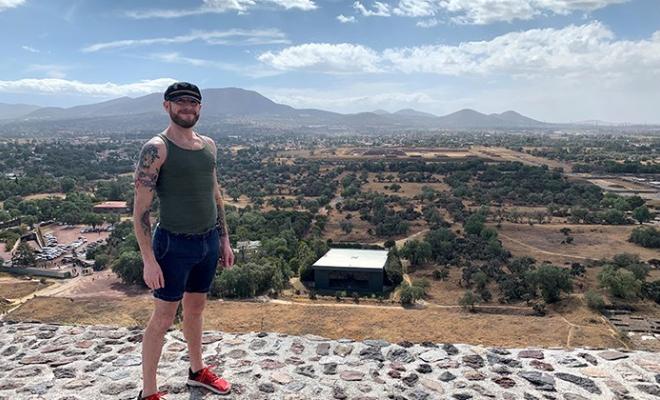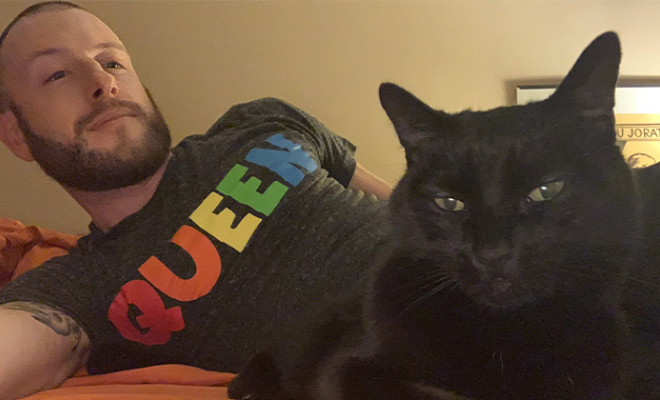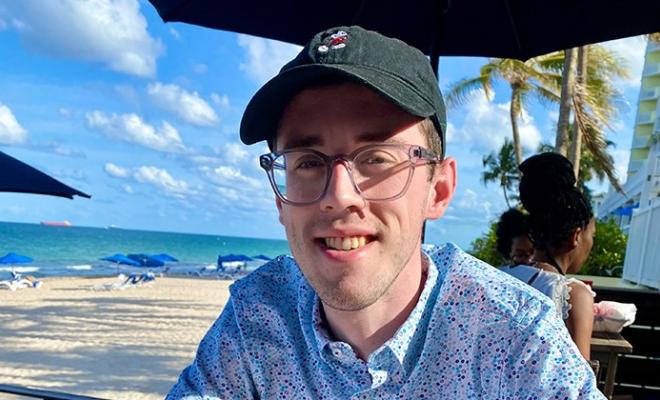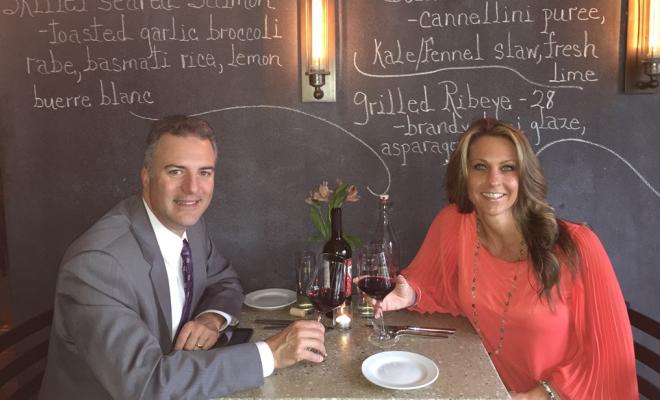This piece discusses suicide and suicidal ideation, and some people might find it triggering. If you or someone you know is suicidal, please contact the National Suicide Prevention Lifeline at 800-273-TALK (8255).
My name is Joey, I have CF, and I'm a grateful recovering alcoholic and addict.
I had my first alcoholic drink -- a beer -- at an 8th grade party, quickly followed by a bottle of wine, lots of drunkenness, and the first of many blackouts. The next morning, I woke up in the front yard of a friend's house in only my underwear and a newly chipped tooth. Everyone recounted the previous evening, laughed, and cheered me on. It was the best feeling. I suddenly wasn't the awkward kid who was always coughing or in the hospital, smelled bad, and couldn't get out of his own head. Before that beer, I'm not sure I had ever spoken to most of those kids. Alcohol helped me find a voice that night.
Over the years, I've woken up -- drunk or hungover -- on park benches, strangers' beds, in the hospital, in car accidents, and in jail. I developed a transient relationship with my family -- going weeks and months without calling my mother. When alcohol wasn't enough to blur the traumas of CF, abandonment issues, and the fear of death, I became a “trash can” -- I swallowed, smoked, snorted, and shot up every available drug. It felt like a never-ending cycle of trauma, addiction, and terrible, life-risking decisions. I would wait months to tell my doctors when I was sick. I was paranoid and angry at my CF docs.
I didn't want to die, but a voice in my head kept telling me I didn't belong, that I didn't have a future. For decades, I believed that voice.
During the few years leading up to my eventual breaking point, my drinking only escalated. I put booze in my coffee, I brought flasks of liquor to work and stashed them in my locker, and I'd guzzle a bottle or two of wine before bed. I began to resent my partner, friends, co-workers, and family. My siblings started getting married and having children. During holidays, I was the only one getting drunk. They would all have a couple of beers while I chugged tequila, wine, and whatever else my mother and stepfather tried to hide from me.
I was often too drunk to figure out my insurance, and I'd go years without it. For months, I'd let my illnesses fester, knowing I didn't have the money to pay for a hospital visit. And when I got sick, I blamed everyone in my path. I fought with people on social media. I ghosted friends. I cheated on and gaslighted lovers. Eventually, alcohol wasn't enough, I found crystal meth. It hooked its claws into me and refused to let go. It's a terrible, disgusting drug, and it's so very addicting.
On April 1, 2019, my partner of 5 1/2 years broke up with me. I was a complete mess, a hurricane of debt, disease, and drama. He tried his best to weather this storm, but it was clear that I was a category 5. Over the next few days, I tried to drown myself in booze and painkillers. I wrote three suicide notes. But I couldn't kill myself. It was becoming clear to me that alcohol was only making this situation worse. Over the next week, a man in Boston friend-requested me on Facebook. This new friend and I began chatting and he told me that he was sober, a drug-addict in recovery. He had hope -- a hope I desperately needed. So, I began my journey to sobriety. He brought me to a 12-step program and with the help of other sober people, I began to have faith. Being honest and vulnerable didn't come naturally; I'd built up walls and defenses for decades. But they gave me the tools for change. In the beginning I wrestled sobriety like it was a bear. Who, in their right mind, wrestles a bear? My addiction didn't want to see me go. Even though it was destroying my life, it felt like it was all I knew.
It's been two years since I've had a drink of alcohol. In January, I relapsed on crystal meth. And today, I have 119 days of continuous sobriety. Over this time, I've had to change my way of thinking. All my traumas that I used to drink over I've turned into my greatest strengths. There are days when I am awash with serenity. There are days when I'm pacing my apartment, pulling out my beard hair over doubt and resentments. But I know that a drink or drug will only make things worse. Here are some things that I'm really proud of: My relationships are becoming healthier. I'm learning that when I'm my authentic self, those who are looking for me will find me. I listen to my doctors, and I make it to all my appointments. I found an amazing care team at Boston Children's Hospital. Without my sobriety I wouldn't have found them, and I might not be on Trikafta today. I'm a great single dad to my cat, Dorian, and my new puppy, Grey. That partner who broke up with me is now my best friend.
And this summer, I will turn 40. In 1981, this wasn't even a possibility. I'm living a life beyond my wildest dreams.
If you are struggling with addiction -- booze, drugs, sex, food, fantasy, etc. -- you are not alone. We are all over the world. Tell someone. There are many sobriety assistance programs, such as Alcoholics Anonymous (AA), which will welcome you. And with Zoom, you can find AA and all its sub-groups everywhere. I wake up every morning and do something I never did before I got sober -- I pray to God and the universe for patience and willingness to be sober, and of service to my fellows, friends, and family. Sobriety takes time, practice, and support. I'm so grateful for this temporary life. Now I look in the mirror -- I look at this almost 40-year-old face, this body covered in tattoos and scars. I tell myself that I belong here. I belong. And so do you.
Interested in sharing your story? The CF Community Blog wants to hear from you.






